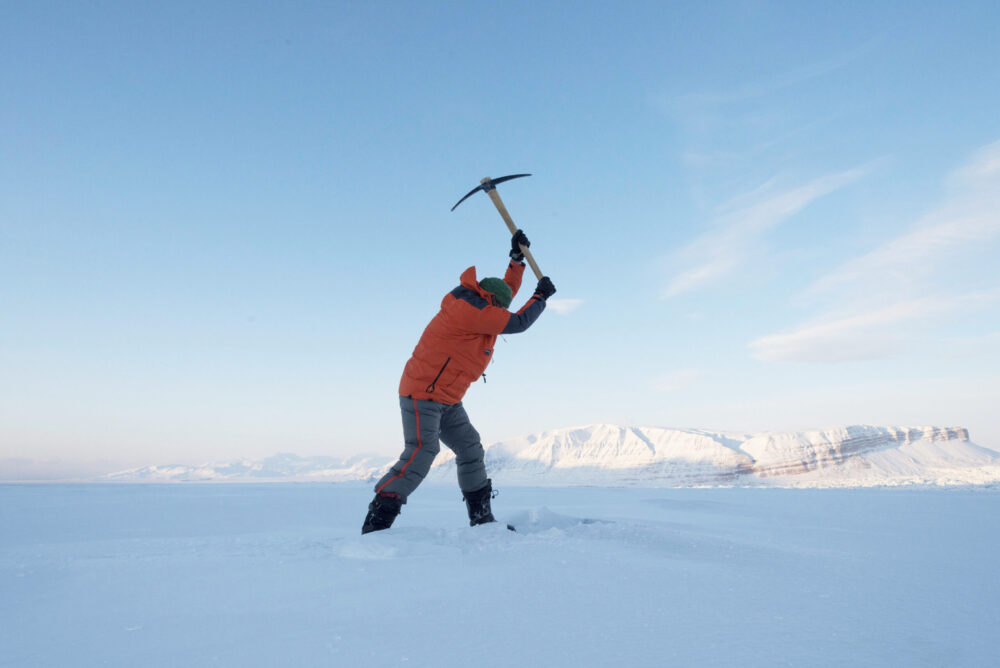Plan to protect melting glaciers launched at UN event

A new plan to slow the melting of the world’s glaciers and protect the microbial life on them will be launched at a United Nations event this week, and it could see a Welsh scientist take on a key role in their preservation.
Ice in the world’s 200,000 glaciers stores 70% of Earth’s freshwater and is vital for the food and water supply of billions of people.
In 2023, glaciers lost water equal to about five times the volume of the Dead Sea.
Venezuela and Slovenia have already become the first two countries to have completely lost their glaciers in modern times.
According to scientists, even with the most ambitious goal of limiting global warming to 1.5°C, up to half of the world’s glaciers will disappear by the end of the century.
Geotextiles
Called the ‘Glacier Stewardship Program’, the new plan proposes testing ways of protecting the glaciers, include designing new materials and improving existing methods like geotextiles to increase the reflectivity of glaciers.
Led by an international alliance of 37 scientists, the 10-year project would also establish an ‘International Cryomicrobiome Biobank’ to preserve the unique microbial life found on glaciers today.
The plan is clear that it should not be seen as an alternative to steps to reduce the world’s carbon emissions but could complement them.
The programme will be launched at the UN’s World Day for Glaciers event in Paris later this week – the organisation has declared 2025 the International Year of Glaciers’ Preservation.
Among the group of scientists from 13 countries who have drawn up the proposals is Dr Arwyn Edwards from the Department of Life Sciences at Aberystwyth University, who will take a leading role in the work to establish a biobank to protect the glaciers’ microbes. He said: “Mountain glaciers are vitally important for the climate, water cycles, biodiversity and people. From the Alps to the Andes, they are the source of some of the Earth’s largest rivers – supplying fresh water and providing food to billions of people. More than a fifth of the world’s population rely on them, and they are a home to unique organisms.
“While it’s clear that reducing greenhouse gas emissions to the atmosphere through systematic decarbonisation is the only way to safeguard glaciers in the long term, our plan proposes complementary measures that could preserve more glaciers and the life inside them closer to their present state than would otherwise be possible.”
Early warning systems
The programme would also include deploying a network of new AI-enabled early warning systems. These would seek to protect people and places in some of the world’s most perilous mountain ranges from hazards like floods and avalanches.
Dr Edwards added: “Rapid glacier shrinkage can cause terrible catastrophes: floods, glacier collapses and landslides. These disasters can eradicate entire villages, destroy critical energy infrastructure and roads, and erode agricultural soils. The livelihoods of several tens of millions of people around the world are at risk.
“These proposals are our last best chance to bring together the global expertise required to safeguard glacial environments locally, mitigate impacts of rapid glacier shrinkage on human populations, and prevent the loss of the ice-locked biodiversity.”
Support our Nation today
For the price of a cup of coffee a month you can help us create an independent, not-for-profit, national news service for the people of Wales, by the people of Wales.




